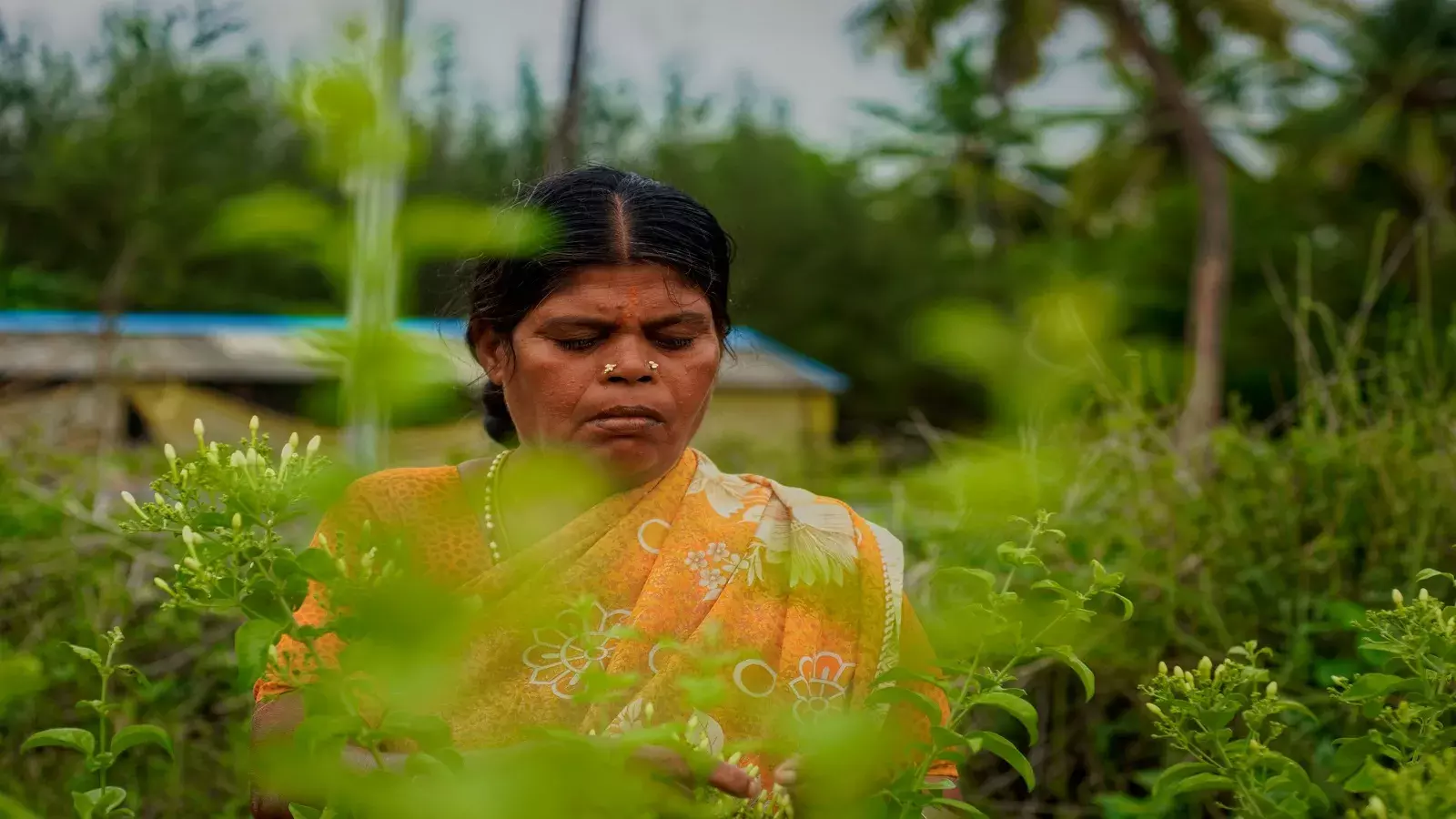Do Women Contribute More To Agriculture? A FactCheck
Women's contribution to agriculture is indispensable for economic growth and development. But it is often ignored

Taken from Flickr Photos
Reacting to a recent comment by Sharad Arvind Bobde, Chief Justice of India about women's participation in the farmers' protest in Delhi, Yogendra Yadav, President of Swaraj Abhiyan reiterated that more than 70% of the farm labour in India comprises of women.
This claim is true according to the data provided by Periodic Labour Force Survey 2017-18. According to the survey, 73.2% of female workers in rural areas are engaged in agricultural sector as against 55% male workers. Similarly, in the urban areas female workers engaged in agriculture constitutes up to 9.1% whereas it is 5.4% for male workers. Although there has been a steady decrease in engagement of the work force in the agricultural sector as compared to 1977-78 when rural women involved in agricultural sector stood at 81.1%, yet the involvement of women in agriculture is higher than that of men both in rural and urban areas according to the data.
An important point stated in the Economic Survey 2017-18 in this regard is that with growing rural to urban migration of men, there is feminisation of agricultural sector, with increasing number of women in multiple roles as cultivators, entrepreneurs and labourers.
However, a study by UNDP shows that agriculture continues to underperform in most of the developing countries because of reasons such as lack of access to technology and storage facilities. Women provide approximately 40% of the labour force in agriculture and are productively engaged as rural workers and entrepreneurs but women in agriculture and rural areas have less access than men to productive resources, training and information.
Speaking to fact checking website BOOM, Professor Vibhuti Patel of School of Development Studies, Tata Institute of Social Sciences, Mumbai said that there is not just misrepresentation but a complete invisibilisation of women in agriculture. She said, "Our official discourse revolves around farmer to be a man." Prof. Patel added that firstly there are operational biases because those who implement state policies and collect data do not count agricultural work done by women. Tasks like milching cattle, fetching grass and doing the kitchen garden are unpaid jobs, hence not considered as contributing to agricultural operations. Secondly, there are conceptual biases which says that 'work' is done 186 days/year and 8 hours/day which almost turns a blind eye towards the concept of seasonality. Women do different work in different seasons.
An Oxfam study says that women's economic empowerment could reduce poverty. The neoliberal model has made it difficult for women to engage in better quality and better paid jobs, address inequality in unpaid care work and women's influence and decision-making power is constrained. Moreover, the three new Farm Bills passed in September 2020 further reduces the agency of women in agriculture whereby abolition of the APMC Mandis creates an income inequality for women farmers. Although women farmers prefer to trade outside the APMC Mandis with private traders, these Mandis create a crucial role in signalling the prices. This gave bargaining power to negotiate the prices even though the women farmers sold outside the APMCs. Corporatization and technological changes in agriculture further curtails the role of women in agriculture as a result of digital illiteracy among women involved in agriculture.
Agriculture Census 2015-16 shows that although the total number of operational holdings in the country increased from 138.35 million in 2010-11 to 146.45 million in 2015-16 yet the female holdings were 14.0% as against 86.0% for male in 2015-16 respectively. According to Prof. Vibhuti Patel, even when various development projects like construction of thermal power plants or other dams lead to evacuation of villages, women even lose their traditional customary rights to land. Land allotments are made to either the male children of the family who might be 12 years old or to the oldest man of the family who is 80 but not to a woman. Women are not even allowed to touch agricultural machineries or pesticides even though it means hiring male farmers from other states.


